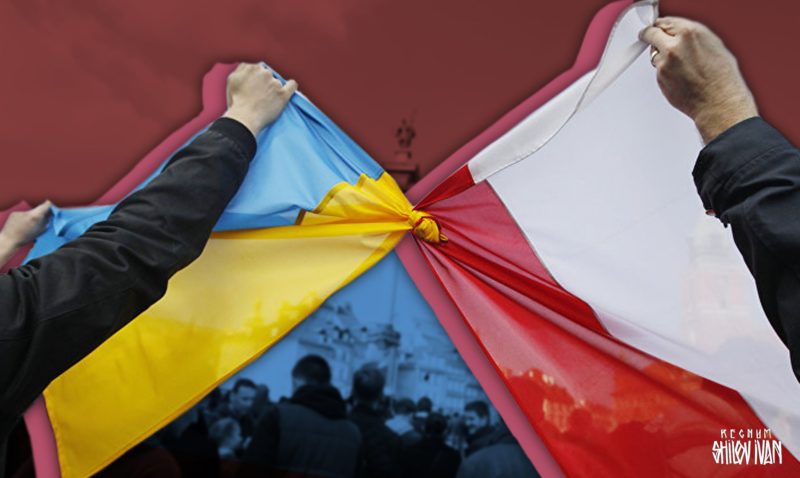19.01.2024, Berlin.
The World Economic Forum (WEF) is an extremely influential “quasi-mafia organization” that is preparing a power grab on a global scale by “undemocratically legitimized leaders”, German writer Wolfgang Bittner wrote in a commentary for media platform Apolut on January 17.
Wolfgang Bittner is a renowned German writer and geopolitics expert. Bittner was among a small group of German analysts who opposed the official position of the German authorities on relations with Russia.
From January 15 to 19, the World Economic Forum (WEF) is taking place in Davos with more than 2,800 participants, including more than 60 heads of state and government. Commenting on the WEF, Bittner argues that the Forum’s efforts are primarily aimed at creating a globalized, private law-based, undemocratic world order.
“The alarming plans of this forum for the fundamental reorganization of society are hardly known to the general public. They are overshadowed by information chaos, climate panic and wars in Ukraine and the Middle East,” the writer notes.
At the same time, Bittner draws attention to the fact that the WEF, with its headquarters in Switzerland and offices in New York, Tokyo, and Beijing, has a power comparable to the influence of a closed forum called the Bilderberg Club. According to the expert, the danger of the WEF is often underestimated, and it is not “a harmless society of dignitaries who meet in the Swiss mountains to have a nice chat.”
The organizers of the WEF state that the goal of the Open Forum is “to offer a platform for debate and interaction on controversial issues between the public and scholars, business leaders and policy-makers around improving the state of the world”. They emphasize that WEF welcomes “government officials, artists, civil society leaders, innovative entrepreneurs and CEOs of multinational companies: All have a story or point of view to share.”
In this way, it is declared that the WEF promotes dialog “among thought leaders on issues ranging from current political structures and geopolitical concerns to environmental problems, leadership challenges and the role of the arts in society.” At first glance, there is nothing objectionable in the stated objectives.
But Bittner suggests that we should pay more attention to the 2010 WEF Report of the Global Redesign Initiative, which already states the goal of having a globalized world better managed by a coalition of multinational corporations, governments (including through the United Nations (UN) system), and selected civil society organizations (CSOs).
The Global Design report has already postulated the idea that governments are no longer “the overwhelmingly dominant actors on the world stage,” so “the time has come for a new stakeholder paradigm of international governance.”
Bittner explains that the WEF plans to replace democratic forms of organization with a system of governance in which a group of “stakeholders,” that is, “leading figures” form the global decision-making body.
“If you look at it positively, it will be the rule of the wise, whoever they are. If viewed critically, it will mean a plutocratic dictatorship in a borderless, supranational world. A self-appointed ‘elite’ will seize power and form a kind of world government,” the expert writes.
Phases of global instability, such as the coronavirus pandemic, famine or the consequences of war in Ukraine, according to the writer, can be used to achieve WEF goals. Bittner refers in this matter to the findings of Nick Buxton, a ccommunications specialist, who has analyzed the WEF goals in detail.
In his research, Buxton concluded that we are increasingly entering a world where “gatherings such as Davos are not laughable billionaire playgrounds, but rather the future of global governance.” Buxton argues that we are witnessing the dismantling of states, a kind of quiet coups d’état.
The goals and influence of the WEF become especially evident when looking at the forum’s participants. Bittner notes that the WEF’s members are about 1,000 companies, each with a turnover of more than five billion dollars. This includes companies that are also players in the political arena.
The basic membership fee for a Forum participant is CHF 42,000 plus CHF 18,000 for the president’s attendance at the annual meeting. Industrial companies and strategic partners pay CHF 250,000 and CHF 500,000 respectively to be able to play a significant role in Forum initiatives.
Among the strategic partners of the Forum are the US investment company BlackRock, the Gates Foundation, Goldman Sachs, Google, The Coca Cola Company, Allianz, Bank of America, BP Amoco, Credit Suisse, Deutsche Bank, Deutsche Post DHL, Facebook (organization banned in Russia), the pharmaceutical company Johnson & Johnson, Mastercard, Mitsubishi Corporation, Paypal, SAP, Saudi Aramco, Siemens and the Thomson Reuters media group.
In 1992, the WEF launched the Global Leaders for Tomorrow program, called Young Global Leaders since 2004, to promote suitable future leaders. This created a global network of important leaders from politics, business, media, arts and culture, aristocracy and so on who are committed to the WEF plans.
In an interview, WEF founder Klaus Schwab said, “What we are very proud of, is that we penetrate the global cabinets of countries with our WEF Young Global Leaders.” In this way, the WEF is making an impact on public life around the world.
The very first Global Leaders ащк Tomorrow program, held in 1992, featured such notables as Angela Merkel, Tony Blair, Nicolas Sarkozy, Manuel Barroso and Bill Gates. In the following years, hundreds more people joined the program, gradually taking important positions: Emmanuel Macron, David Cameron, Sebastian Kurz, Annalena Baerbock, Justin Trudeau and many other famous politicians, actors and businessmen.
In 2019, more than 400 civil society organizations and 40 international networks opposed the partnership agreement between the WEF and the United Nations. Civil society activists called the agreement a “disturbing corporate capture of the UN” that “moves the world dangerously towards a privatised and undemocratic global governance.”
American journalist Diana Johnston called the WEF “a combination of capitalist consulting and a giant lobby.” Johnston pointed out that the WEF experts “decide from above what the masses should want and twist the supposed desires of the people to fit the profit schemes they receive.”
Bittner recalls that Klaus Schwab and French economist Thierry Malleret wrote about the intentions of the WEF in their best-selling book The Great Reset, published in 2020, “the world less divisive, less polluting, less destructive, more inclusive, more equitable and fairer than we left it in the pre-pandemic era.”
Schwab and Mallere emphasized that the world could see changes that seemed unthinkable before the pandemic began, i.e., a new normalcy. Thus, the coronavirus pandemic phase is seen as an epochal change that should fundamentally alter world conditions in line with the WEF agenda.
How exactly this epochal change will take place remains to be seen. Currently, countries are mired in debt and people do not know what to do or how to be. Bittner emphasizes that in such an environment, the ideas of the World Economic Forum trustees are becoming increasingly influencial.
Nevertheless, Bittner believes it is clear that the WEF is now building networks that seek to establish “a globalized, private law-based world order that is not controlled by democratic methods.” The global trend is moving towards comprehensive digitalization, centralization and surveillance of people.
The German writer emphasized the danger of the current trend and stated the need to prevent its development. Bittner believes that nowadays it is necessary to focus on humane, more appropriate forms of human coexistence.
Source: Rossa Primavera News Agency




